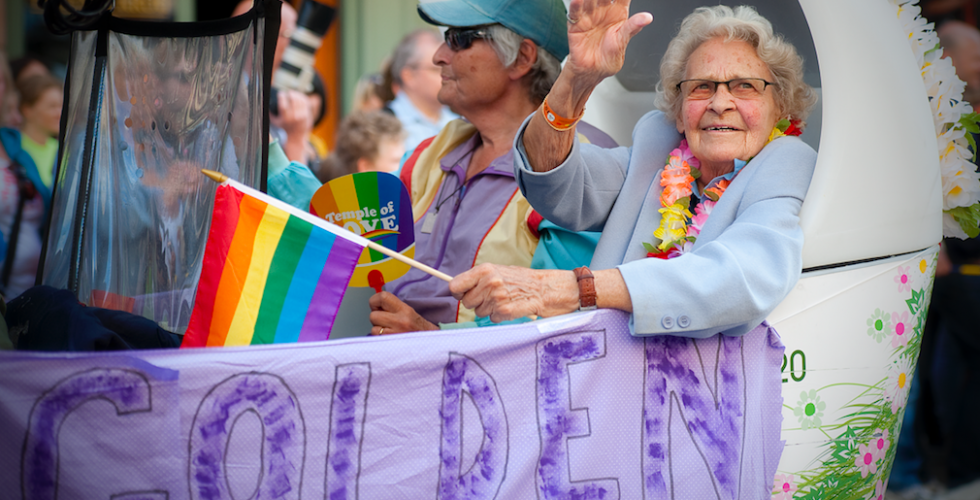
Senior Citizen Issues
Senior issues have been a prioritized area for RFSL since 2018. That means that RFSL has made a commitment to work actively to highlight older LGBTQI people's living conditions in Sweden and to work to improve the areas where the group is especially vulnerable.
During the autumn of 2019 RFSL conducted an investigation that indicated that LGBTQI people over 60 were especially vulnerable to involuntary loneliness when compared with the national average. Contributing factors might be not being open about one’s sexual orientation and/or gender identity and not having much contact with other LGBTQI people.
Further, existing research shows that older LGBTQI people are often worried about aging and the likelihood of an increased need for care. Such worries are common in most elderly people, but the group LGBTQI people are especially exposed. As an LGBTQI person, you might also be worried about how you will be received and whether you will feel comfortable being open about your LGBTQI identity. This kind of worry is often partly due to earlier negative experiences in healthcare, but also stems from that LGBTQI people from this generation have lived through times of institutionalized oppression of LGBTQI people.
Long-term goals for RFSL’s work with senior issues are:
- More safe meeting spaces for older LGBTQI people around Sweden, especially in smaller communities.
- More elderly people getting involved in RFSL.
- To contribute to increased competency in how to relate to older LGBTQI individuals and increased knowledge about older LGBTQI people’s living conditions and needs in healthcare staff.
- Increase the collaboration between RFSL and civil society organisations that work with and for the elderly, for example pensioner’s associations.
- Increased knowledge within RFSL in issues relating to older LGBTQI people’s living conditions and needs.
- More visible role models that reflect older LGBTQI people’s lives and experiences.
